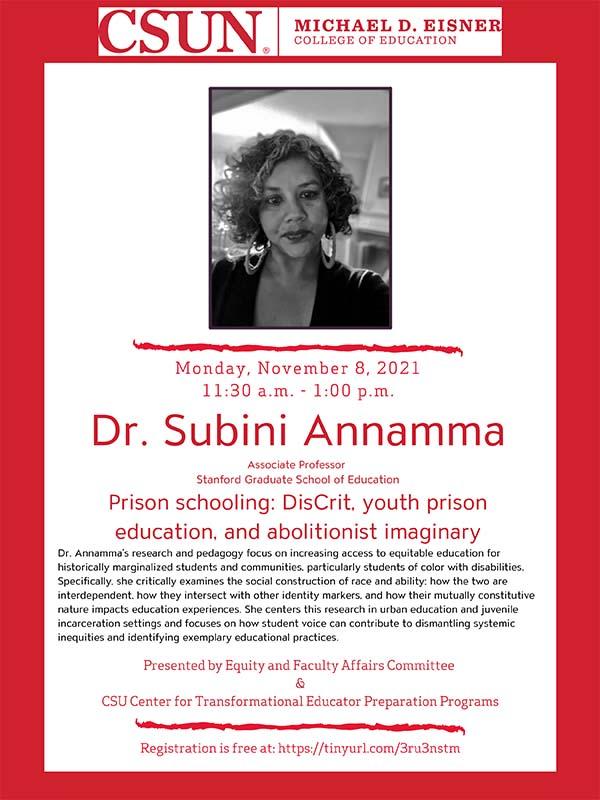On November 8th, 2021, Dr. Subini Annamma, of Stanford Graduate School of Education, presented for our university and spoke on the topic: Prison schooling: DisCrit, youth prison education, and abolitionist imaginary. Annamma's research and pedagogy focus on increasing access to equitable education for historically marginalized students and communities, particularly students of color with disabilities. Specifically, she critically examines the social construction of race and ability; how the two are interdependent, how they intersect with other identity markers, and how their mutually constitutive nature impacts education experiences. She centers this research in urban education and juvenile incarceration settings and focuses on how student voice can contribute to dismantling systemic inequities and identifying exemplary educational practices.
A Social Justice Dialogue debriefing of Dr. Annamma's discussion and how to make connections to our work in the College of Education followed this talk with College of Education faculty.
The Michael D. Eisner College of Education would like to extend our thanks and appreciation to Dr. Annamma for this insightful and valuable presentation!
DisCrit Tenets (Annamma, Connor, & Ferri, 2013)
- DisCrit focuses on ways that the forces of racism and ableism circulate interdependently, often in neutralized and invisible ways, to uphold notions of normalcy.
- DisCrit values multidimensional identities and troubles singular notions of identity such as race or dis/ability or class or gender or sexuality, and so on.
- DisCrit emphasizes the social constructions of race and ability and yet recognizes the material and psychological impacts of being labeled as raced or dis/abled, which sets one outside of the western cultural norms.
- DisCrit privileges voices of marginalized populations, traditionally not acknowledged within research.
- DisCrit considers legal and historical aspects of dis/ability and race and how both have been used separately and together to deny the rights of some citizens.
- DisCrit recognizes whiteness and Ability as Property and that gains for people labeled with dis/abilities have largely been made as the result of interest convergence of white, middle-class citizens.
- DisCrit requires activism and supports all forms of resistance.










